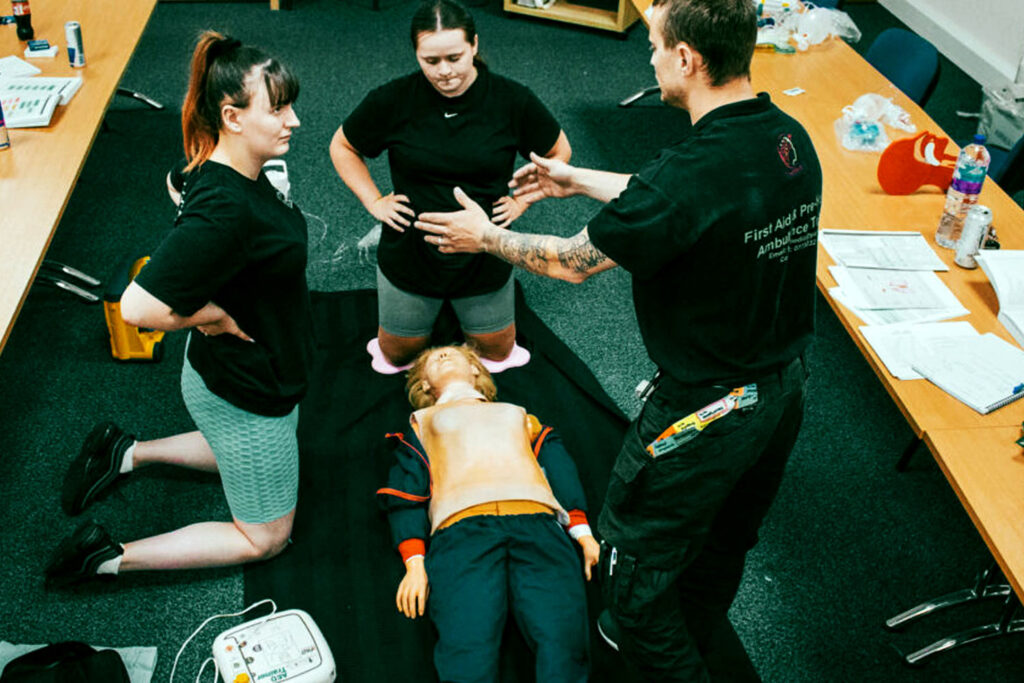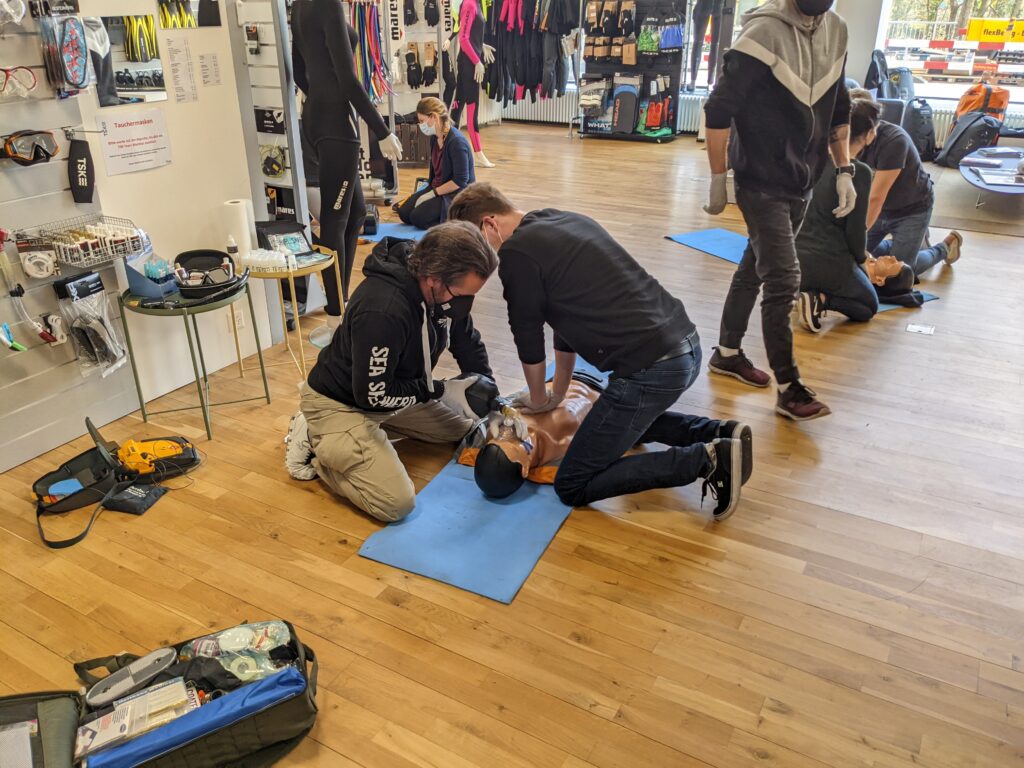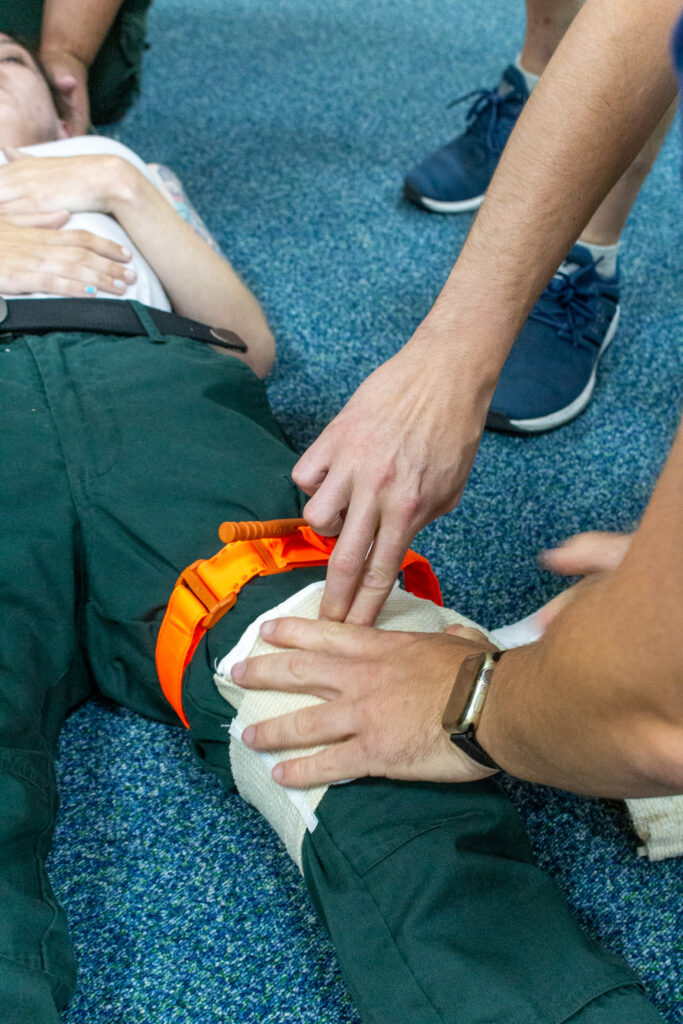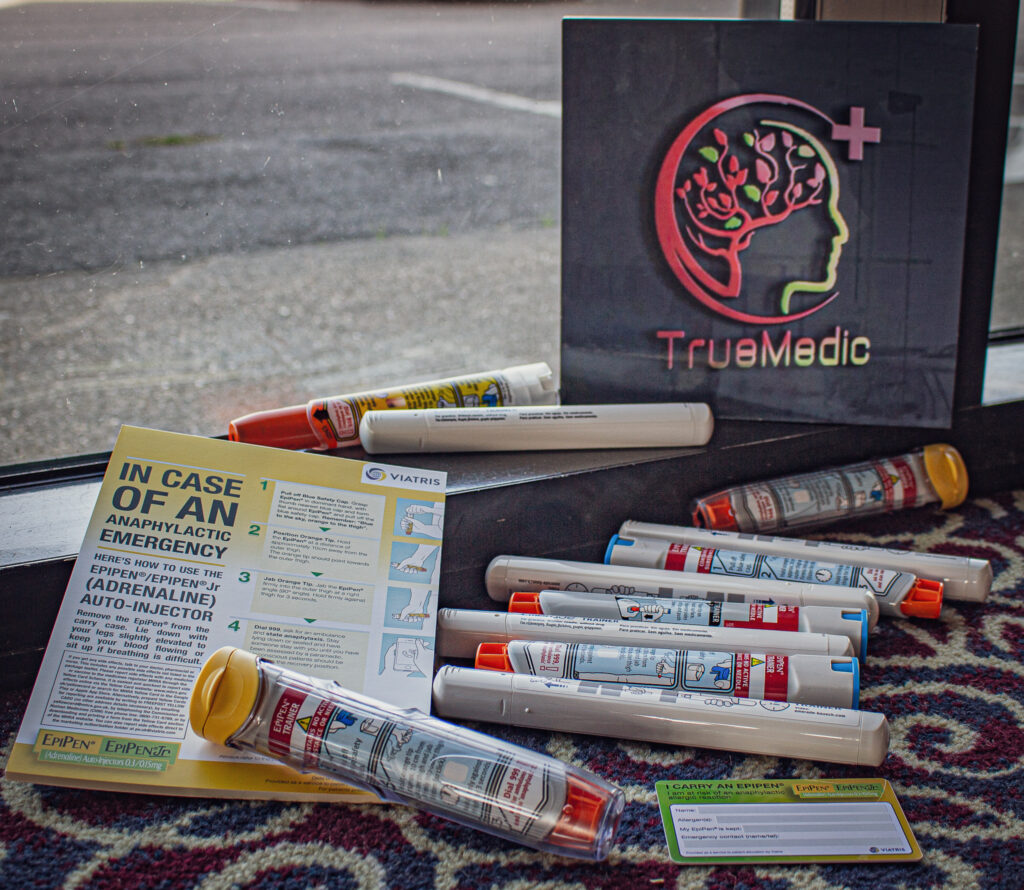Emergency medical situations can arise at any time, and in such cases, prompt and adequate medical intervention can make all the difference in saving a life. As a first responder or medical professional, you may be the first point of contact for someone needing urgent medical attention.
That’s where Intermediate Life Support (ILS) training comes in. It provides crucial skills and knowledge necessary for early intervention in emergencies. If you’re someone who wants to make a difference in emergency medical situations, the question is, how can you best equip yourself for such scenarios?
The answer lies in ILS training and certification, which can help you develop the skills and confidence to provide critical care when it matters most. This article will examine how the Intermediate Life Support (ILS) course can help save lives and why it is an essential training course for first responders and medical personnel. [1]
TrueMedic Ltd is a UK-based company that provides high-quality first aid courses, medical training, and supplies to individuals, healthcare organizations, and other businesses, with a mission to improve patient outcomes and save lives.
So, whether you’re a medical professional looking to enhance your skills or be better prepared for emergencies, read on to discover the significance of ILS training and certification.
What Is Intermediate Life Support (ILs) Training?

The ILS course aims to enhance healthcare professionals’ knowledge and skills to provide early intervention and advanced life support measures to critically ill or injured patients.
The ILS course is usually delivered over two to three days and is taught by experienced instructors. The course combines both theoretical and practical training, with participants learning through case-based discussions, simulated scenarios, and hands-on training using medical equipment.[2]
Upon completing the ILS course, participants are expected to have gained the necessary knowledge and skills to provide prompt and effective care to critically ill or injured patients. The certification received after completion is recognized by healthcare organizations across the UK and is valid for four years, after which healthcare professionals must undergo re-certification.
How Can Ils Improve Patient Outcomes?

The Intermediate Life Support (ILS) course can improve patient outcomes by equipping healthcare professionals with the skills and knowledge necessary for early intervention and advanced life support measures. Here are some of how ILS can improve patient outcomes: [3]
-
Early Recognition Of Life-Threatening Emergencies
The ILS course teaches healthcare professionals how to recognize the signs of life-threatening emergencies, such as cardiac arrest, anaphylaxis, and trauma. By identifying these emergencies early, healthcare professionals can provide prompt and adequate medical intervention, significantly improving patient outcomes.
-
Early Intervention

In an emergency medical situation, early intervention is crucial. The ILS course teaches healthcare professionals how to provide early intervention measures, such as essential life support, airway management, and defibrillators. These measures can stabilize a patient’s condition and prevent the situation from worsening.
-
Advanced Life Support
Basic life support measures may sometimes not save a patient’s life. The ILS course teaches healthcare professionals advanced life support measures, such as the administration of medications and advanced airway management. These measures can be critical in managing critically ill or injured patients.
-
Improved Teamwork
The ILS course teaches healthcare professionals how to manage emergency medical situations effectively in a team. By improving teamwork, healthcare professionals can provide more coordinated and efficient care, improving patient outcomes.
-
Post-Resuscitation Care
The ILS course also covers post-resuscitation care, which is essential in ensuring that patients receive appropriate care after a cardiac arrest. By providing reasonable post-resuscitation care, healthcare professionals can improve patients’ chances of recovery and prevent further complications. [3]
TrueMedic Ltd’s ILS course is taught by experienced instructors who use practical and theoretical training to ensure that participants deeply understand emergency medical care.
How TrueMedic Ltd Becomes A Helping Hand To Those In Need

TrueMedic Ltd genuinely understands that everyone should be equipped with life-saving skills to protect the health and safety of those around them. This is why TrueMedic Ltd provides training courses to help prepare individuals with the essential knowledge, understanding, and practical skills required to provide emergency medical care safely.
Not only does the Intermediate Life Support (ILS) course offers an in-depth understanding of the human body and the pathophysiology of the disease, but it also provides individuals with practical instruction on how to manage a wide range of medical emergencies.
From recognizing potential life-threatening situations to determining the best course of action, this comprehensive course will ensure that all learners have the skills, knowledge, and confidence to react appropriately in any medical emergency.
Our team of professionals at TrueMedic Ltd is dedicated to ensuring that all learners have the opportunity to integrate their learning and experience with comprehensive, interactive online resources. This way, individuals can gain an understanding of medical emergencies from the comfort of their own homes.
Conclusion
In conclusion, the Intermediate Life Support (ILS) course is a vital training program for healthcare professionals. It equips them with the skills and knowledge to manage emergency medical situations effectively.
Courses at TrueMedic Ltd are designed to equip healthcare professionals with the skills and knowledge required for early intervention in emergencies. The ILS course covers various topics, including airway management, essential life support, and recognizing deteriorating patients. Contact us for any kind of help.
FAQs
1. What is the difference between primary and intermediate life support?
ILS refers to emergency medical care provided by first responders with more training than essential life support providers (such as EMT-Basics, Basic First Responders, and First-aid providers, depending on the country). However, their activity level is less than advanced life support providers (such as Paramedics). [4]
2. What is the purpose of the ILS course?
Every day, lives are at stake in medical emergencies. The primary purpose of the ILS course is to prepare individuals with the skills and knowledge they need to respond quickly and appropriately in various life-threatening situations.
3. Why is the ILS course important?
The ILS course is essential for those looking to take their skills and knowledge of medical emergencies to the next level. Not only will they be able to recognize potential life-threatening situations better, but they will also be equipped with the appropriate skills and knowledge required to effectively manage a wide range of medical emergencies.
4. How will I benefit from the ILS course?
By taking the ILS course, you will understand how to manage medical emergencies. You will be able to recognize potential life-threatening situations and take the appropriate action necessary to save lives. In addition, you will also gain confidence in your ability to provide safe, effective emergency medical care.
References:
[1] https://www.cuh.nhs.uk/health-care-professionals/courses/ils-immediate-life-support/
[3] https://www.greenboxfirstaidtraining.co.uk/immediate-life-support-ils/





